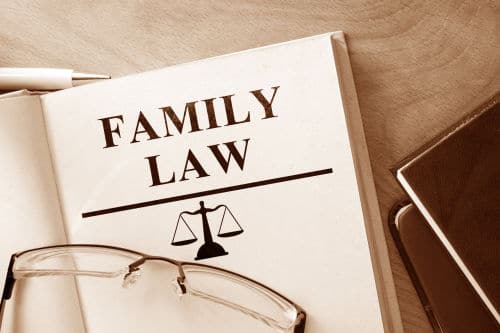Basic Rules for Family Law Motions
Family Law can be very emotional compared to many other areas of law. Both parties are taking a huge step to change their life as they have known it, whether it be through divorce, adoption, or child custody. That is why it is so very important for the attorneys involved to be professional, know the law, and more importantly someone you can trust. Each state mandates the rules or procedure to be followed when drafting a family law motion. To effectively assist clients through this life-changing event, here are some tips to follow when drafting your motions in Minnesota.
Procedural Elements of Filing a Motion
Let’s focus first on the rules that affect every family law motion, with or without children. First, make sure you are very specific regarding the particular relief you are asking of the court. Affidavits should be done in individually numbered paragraphs and then signed, and either contain penalty of perjury language in the affidavit or is notarized. In addition, make sure you serve your motion in a timely fashion. According to the rules, service of motions require 14-day service and responsive motions require 5-day service for responses to the other party’s motion. These service days are not business days, so include weekends and holidays. It is very rare that a court will allow arguments for relief not in the motion and not supported by relevant information contained in the affidavit, which means you need to make sure all points relating to requested relief are clearly stated and completed. In addition, if a request for oral argument is to be made, make sure it is clearly stated in a motion and filed at the time the initial motion for relief is filed. The court, at its discretion, may also permit witness testimony during the motion hearing (most commonly in cases regarding minor children).
If you are dealing with a temporary hearing, make sure the court has the proper jurisdiction and authority to hear the case. Motion hearings are based on affidavits, oral testimony (if applicable), and attorney arguments. Since temporary orders are not able to be appealed, there is no requirement of the court for specific findings of fact.
Most importantly, do not forget to provide the opposing party with written notice of the date and time of a scheduled hearing, the name of the judicial officer, and the issues being addressed. Also, if you have filed a motion, you must initiate settlement efforts within seven days of filing.
Procedural Rules for Cases with Children
If children are involved, certain rules are mandated by the courts. For instance, if a Guardian Ad Litem is necessary, there must be an Appointment Order filed with the court that specifies the duties of the Guardian Ad Litem. Make sure the specific duties do not violate any of the prohibited duties set forth by Rule 903.04, such as conducting custody/parenting time evaluations or mediating disputes between the parties. In addition, it is highly discouraged to file sworn affidavits from children because it can cause the children severe emotional distress.
To learn more about how to file a family law matter and the best practices in being successful in your case in Minnesota, contact the attorneys at the Lake Harriet Law Office at 612-750-4843.

